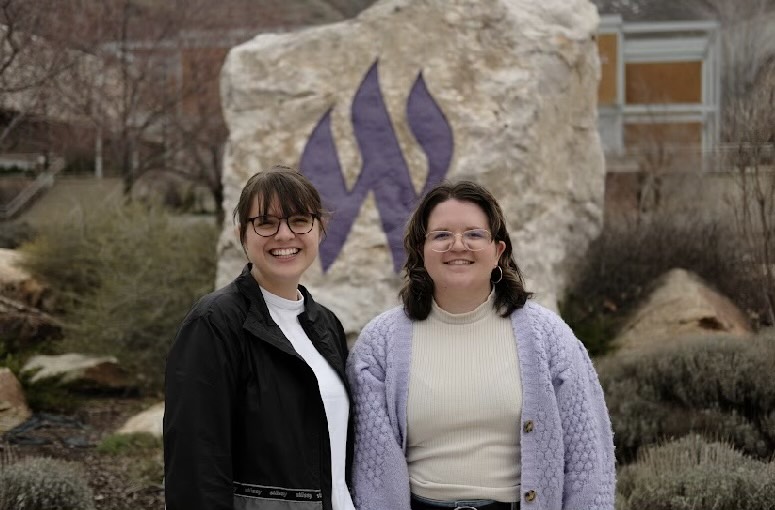Moving abroad and studying in the United States go beyond academic adjustments. For many international students here at Weber State University, it is an emotional and overwhelming experience.
The language barrier is one of the most frequently mentioned difficulties. Even though the majority arrive with varying degrees of English proficiency, the nuances of the language, including slang and academic terminology, pose challenges, discouragement and even frustration.
“I have known a lot of people having issues, especially in southern states. It was very difficult for them to understand, even though they spoke English,” WSU’s Engagement & Belonging Senator Markéta Havlová said. “Sometimes the pace of the language can also be hard.”
Havlová mentioned that language differences are tricky as the culture is tied to the language. For international students, it means they have to dive into both the language and the culture to adjust and immerse themselves in it.
“One thing that helped me the most was watching American TV shows and movies to improve my English and learn how to pronounce the words a bit easier,” Marga Bajgain, an international student from Nepal, said.
Navigating the American college system is also one of the bigger challenges for international students. This transition involves several adjustments, including living in dorms, which is often their first time living alone, learning to utilize unfamiliar academic tools such as Canvas, understanding the credit and grading system and familiarizing themselves with the variety and accessibility of resources available on campus.
Culture shock is also a common experience for international students as it means encountering new norms, social behaviors, customs and routines. They range from getting used to different food cultures and unfamiliar architectural styles, experiencing hot and cold weather and meeting people worldwide. Some international students also need to find themselves in environments of diverse religious practices and holidays that are not part of their lives back home. Bajgain mentioned that even though everything is new, you need to adapt to it after you decide to move to a place.
Finding community on and off campus plays a huge role in making the cultural adjustments smoother and fighting the feeling of homesickness.
“We’re having a big festival in Nepal right now, and I feel the most homesick ever,” Bajgain said.
Bajgain said that even though he can’t celebrate at home, his group of Nepali friends is having a get-together to honor the tradition, and that helps him feel better. For Havlová, attending campus events and contacting available resources were the best ways to make connections, meet new friends and combat feelings of homesickness and missing family.
Even though the journey of adapting to life in the United States is full of numerous challenges for international students, it also offers great opportunities for personal growth and connections. Both Bajgain and Havlová admitted that getting out of their comfort zones helped them build confidence and learn more about themselves and the world around them.














